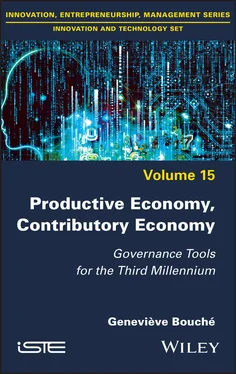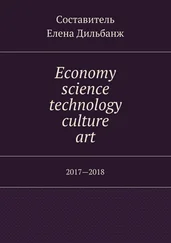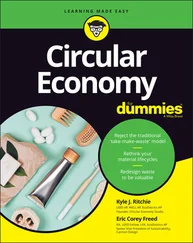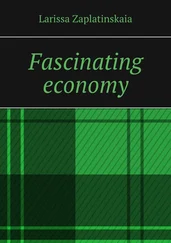Geneviève Bouché finally gives us a picture of the 21st-century Europe. In order to be able to reorient the immaterial economy to serve the common good, Europe must absolutely distance itself from GAFAM and develop its own digital space. For, as she clearly notes, “data is as important as money.” And this digital space has already been in operation for 10 years in Estonia. The project is called X-Road and this national data circulation infrastructure for the common good could be the embryo of the European data circulation infrastructure. It was funded by the European Commission.
So, another visionary proposal from this book.
I would add that my personal impression over the years has been that if there is ethical and visionary thinking coming from Europe, it will be listened to and analyzed carefully. But if it comes from Russia, China or the United States, it will have much less credibility. It seems to me that there is a real curiosity about European initiatives, even at the world level.
In this perspective of the European common good, we could also see the disappearance of all lobbying activities in the European institutions. For lobbying only promotes the particular interests of the most powerful players. The only thing that would be allowed is “advocacy”, which proposes changes to legislative proposals, solely with a view to the common European good. This is a new vision of Europe. And in Jacques Delors' time, this was the implicit rule. We could come back to this.
My conclusion is that this work by Geneviève Bouché places her rightfully in the court of the great architectural thinkers of our 21st century.
Well done and thank you.
Dr. Marc LUYCKX GHISI
Former member of the European Commission’s Prospective Studies Unit
Former member of the Auroville International Advisory Council
Former Dean of Cotrugli Business School in Zagreb and Belgrade
1 1 The term “symbiotic” first appeared around 1600, in the writings of Althusius (von Althaus) who also invented the principle of subsidiarity. See my book Surgissement d’un nouveau monde (Ghisi 2012, p. 263).
2 2 Here is a video on this theme of the Love Economy: https://vimeo.com/27949858. See also Hazel Henderson’s books and her famous website Ethical Markets.
3 3 In speaking of a new civilization, the author is following in the footsteps of Edgar Morin, Le temps est venu de changer de civilisation, éditions de l’Aube, 2017.
4 4 The spiritual dimension must be absolutely distinguished from religions. We can be spiritual and religiously atheist.
5 5 The term “transmodernity” means retaining the positive dimensions of modernity but in a new, more ethical, social and spiritual context. This concept was created by Willis Harman, one of the great thinkers of Silicon Valley, in the 1990s. Together with Peter Drucker, Harlan Cleveland and Jim Garrison, they initiated high-quality global thinking on paradigm shift. Unfortunately, this high-level thinking has not been accepted or taken up by the current generation of GAFA managers.
6 6 The French version of this report was published in 2012 by Odile Jacob, Paris, under the title “Halte à la toute-puissance des banques: rapport du club de Rome au Parlement européen sur les enjeux monétaires.”
Foreword by Éric Seulliet: Proposals Resulting from an Approach of a Cybernetic Futurologist
I have known Geneviève Bouché for a long time and I have always appreciated her perspective. Over the past few years, the Fabrique du futur has participated in the initiatives of the digital think tank collective, which she leads with determination.
One day, when she had joined the Fabrique du futur , I discovered that we had a “cybernetic futurologist” among us. I was surprised and amused by this name, which led to long debates between us on the difference between that and a futurist. Geneviève Bouché’s book is a perfect illustration of her approach as a cybernetic futurologist. It is a very accomplished work by which an “honest woman” of her time, passionate and committed, transmits to us a systemic vision of the situation of the world and gives us tracks of solution to face the future. Geneviève Bouché has an encyclopedic eye. She dives deep into the past to explain the present, and at the same time has a transdisciplinary approach to current problems that she deciphers with talent: history, geopolitics, science, technology, ecology, sociology, culture, etc. Her book sweeps through all the fields, putting them into perspective and crossing them to better bring out the connection and meaning. It also focuses on various issues that allow for a better understanding of the basic and emerging trends.
But beyond the explanations of the world’s issues, and more particularly those of our old Europe, Productive Economy, Contributory Economy recommends ways to follow in order to return to a peaceful and tranquil progress, and to move towards a better tomorrow. Geneviève Bouché suggests balanced and, all in all, reasonable solutions.
However, this does not exclude original, even iconoclastic, proposals, such as those concerning the principle of commencement, those related to monetary biodiversity and smart currencies, to a new conception of digital technology based on the reappropriation by citizens of their personal data, or to the renewed concept of circular economy. But always, Geneviève Bouché takes care to elaborate holistic, boldly realistic and balanced approaches. Thus, her invitation to take a cue from the way nature behaves and evolves in a symbiotic and organic way is inspiring and rich in potential.
Geneviève Bouché reminds us that we are all children of Gaia and that a posture of benevolence and a sense of “care” towards our planet is indispensable. Geneviève Bouché’s words exude a spirit, an almost spiritual quest to help her contemporaries escape from a world governed solely by the productive economy and move towards a contributory economy that focuses on the search for the common good. In this respect, Geneviève Bouché’s work is marked by a great deal of humanism, generosity and wisdom. For all these reasons, I consider Productive Economy, Contributory Economy to be a major work that should become an essential reference for all those who seek to build better futures.
Éric SEULLIET
President of La Fabrique du Futur
Streamlining the way we produce and consume is becoming a matter of course. This is becoming possible thanks to digital technology. But, as a result, the social pact, developed in Europe over time, must change radically. This requires us to take up three challenges:
– the first concerns the restructuring of the “productive” economy, which is dedicated to the satisfaction of the primary needs of individuals;
– the second is the recognition of the “contributory” economy, which is dedicated to the common good. We must reorient our value creation capacities towards contributory tasks such as the family, knowledge, the environment, democracy and spirituality. We must take up this challenge because developing the common good becomes a factor of competitiveness;
– the third concerns the development of the new model of society that is taking shape and that recognizes several forms of value creation 1. But its implementation will require a great deal of determination because the current model is marked by our “deep past” inherited from sedentarization. A huge effort of understanding and audacity is needed to develop our tools of governance, including the social pact and currencies. Imagine, model and experiment with a more complex, but more mature economy: let’s go for it!
Read as you wish: start with the first or second part. The cross-references allow for a tour of the many facets of this change that everyone is talking about. To understand it, you have to go into the details, sometimes invisible or forgotten. Without this understanding, the cuttings to make our model evolve will not be effective.
Читать дальше












